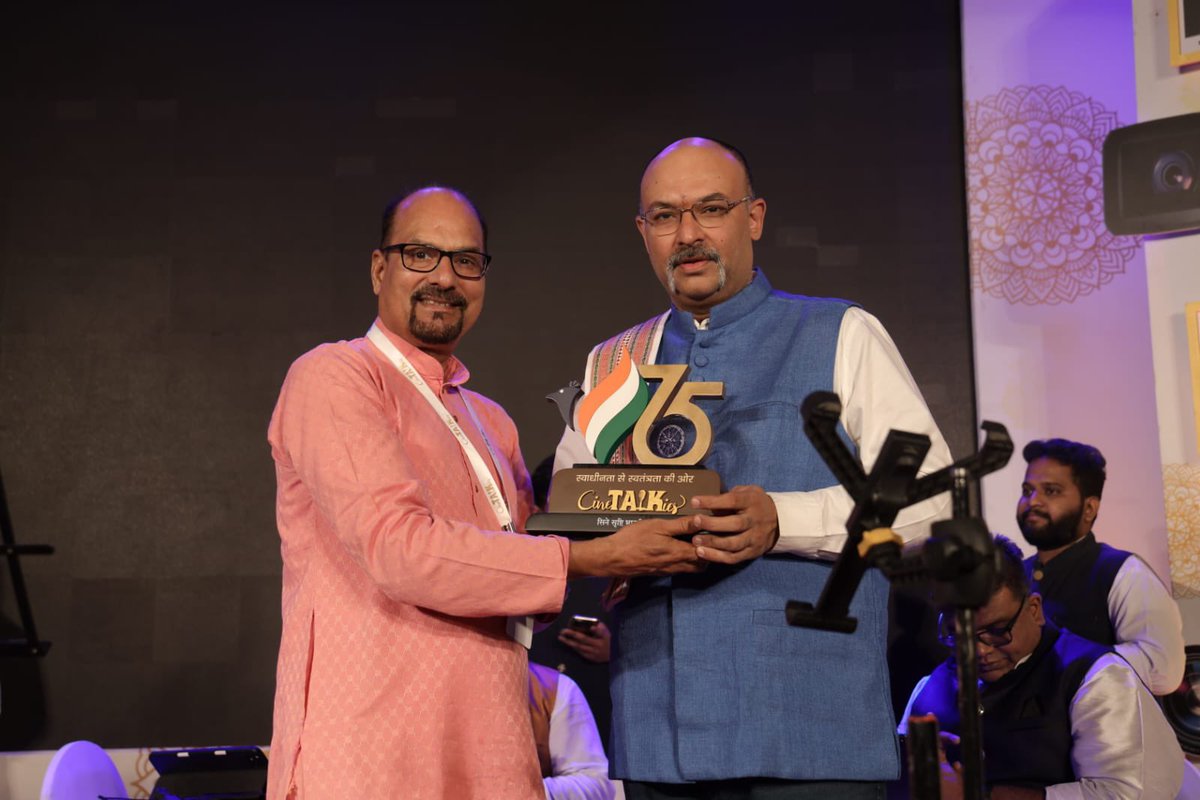#Swatantryagaan
A music concert of songs from Indian cinema that contributed to the Indian freedom struggle and after.
It was great fun to conceive and curate this concert and work with such a talented team led by Kamlesh Bhadkamkar.
A music concert of songs from Indian cinema that contributed to the Indian freedom struggle and after.
It was great fun to conceive and curate this concert and work with such a talented team led by Kamlesh Bhadkamkar.

The musicians were some of the finest of our times - Archis Lele, Anil Karanjavkar, Datta Tawde, Hanumant Rawade, Amit Gothivrekar, Varad Kathapurkar, Rahul Deo and Kamlesh himself.
The singers did such a rocking job that

The singers did such a rocking job that


2 and a half hours of only patriotic songs from films from 1936 to 2021 and yet the audience was kept glued to the seats. A small clip from the concert will give you an idea how electrifying the atmosphere was.
Thanks to Milind Ingale, Hamsika Iyer, Hrishikesh Ranade, Dhawal Chandwadkar and Madhura Kumbhar for the spirited performance.
We tried a lot to give an insight into how songs prior to 1947 were disguised and cryptically coded so that the
We tried a lot to give an insight into how songs prior to 1947 were disguised and cryptically coded so that the

British censors would not find them objectionable to how patriotic songs surged after the Kargil war so that the concert did not remain only about entertainment but would provide an enriching experience. In this, the inputs and contribution of 

• • •
Missing some Tweet in this thread? You can try to
force a refresh





